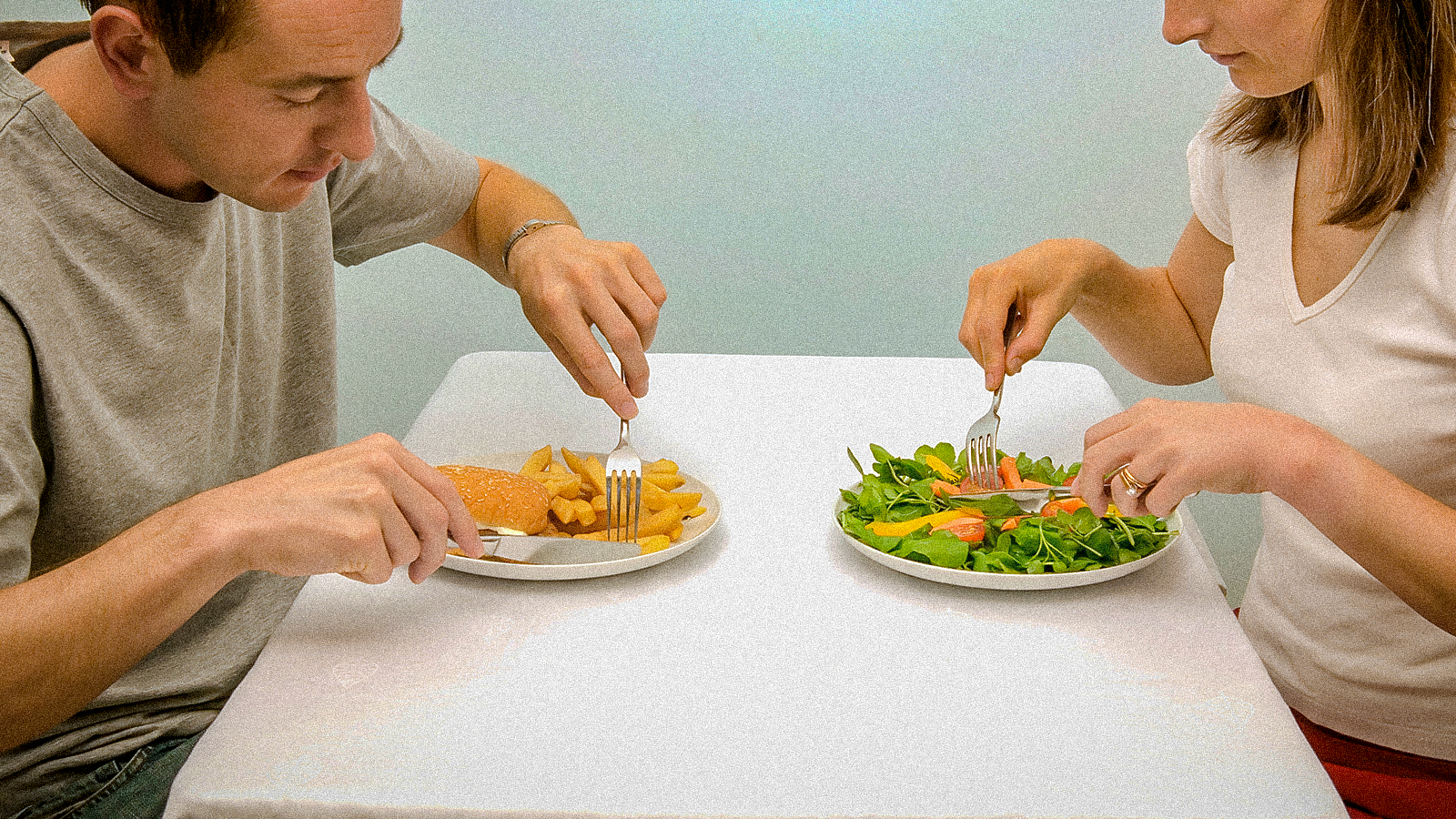Science says your happy marriage is making you fat
 Click Here for the Post https://www.theladders.com/career-advice/science-says-your-happy-marriage-is-making-you-fat
Click Here for the Post https://www.theladders.com/career-advice/science-says-your-happy-marriage-is-making-you-fat
Married men and women are more likely to be overweight than single people even though they are also more likely to monitor their diets and eat healthier food. How is this possible? Research indicates that partnered people wind up with love handles because people love them. Happy relationships lead to weight gain because meals are shared and partners feel secure. Fat and happy is, according to science, a real phenomenon.
The combination of commitment and cohabitation may have everything to do with relationship weight gain — newlyweds gain four to five pounds on average in their first year — but researchers have historically struggled to pinpoint clear mechanisms that explain the girthiness of the joyfully committed.
“Happy couples eat healthier but weigh more. This is the finding of our study which is consistent with other previous studies but not all,” explains Stephanie Schoeppe, a Senior Postdoctoral Research Fellow at Central Queensland University who recently released what might be the most authoritative study on in-relationship spread. “However, our study examined a large population sample — over 15,000 adults — hence our findings provide a significant insight into this topic.”
Schoeppe is getting closer to unraveling the mystery of the fat and happy? How? She and her team pooled data from the annual Queensland Social Survey, that included 15,001 adults. Questionnaires tracked if people were married or single, as well as a number of lifestyle factors such as whether or not they smoked, how often they exercised and ate vegetables and their BMIs. Results revealed that couples smoked less, ate less fast food, and did not drink as much alcohol compared to single people. And yet they were less likely to be within a normal weight range than singles.
Schoeppe found that couples were more likely to plan meals around quality time together and that, although family meals were linked with greater fruit and vegetable consumption, they were also linked to larger portions and more consumption across the board. Single people eating alone tended to consume less. Likewise, it’s possible that couples are more willing to gain weight because they’re not trying to attract a new mate in the market. The study did not look at if relationship happiness made people weigh more or less or look at fluctuation over time. Schoeppe plans to look at how additional variables may affect how much couples gain weight as well, like age.
“We are currently working on a follow-up study that examines whether the associations between relationship status and healthy lifestyle factors differ by age,” she says.
While the study did not look at the whether or not relationship weight represents a health issue, psychologist Wyatt Fisher, who was not involved in the study, recommends that couples who are concerned about their weight make an effort to exercise regularly and be more conscious of portions. He also recommends that couples have preemptive conversations about weight before it comes up because it likely will at some juncture. It’s important for the sustained happiness of relationships that couples understand how their spouse is likely to react to their changing shape.
“Couples should proactively discuss weight gain early in their relationship to see if it is a concern for either of them and why,” Fisher says. “If it is a concern, couples should discuss how to prevent it from happening, such as making healthy dinners and exercising together.”













